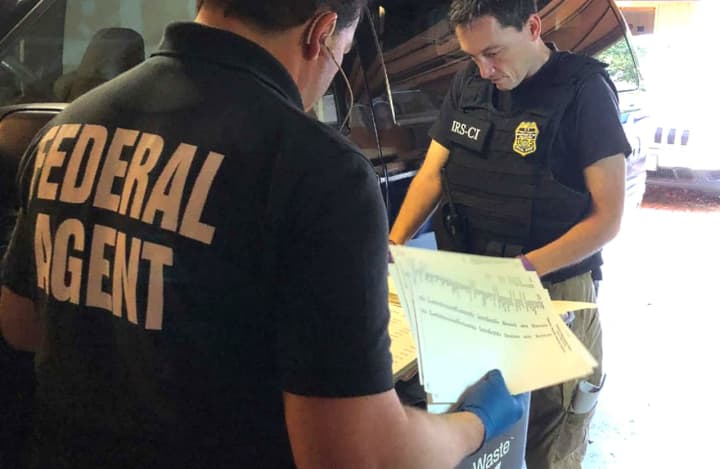On what will be the one-year anniversary of the Coronavirus Aid, Relief and Economic Security (CARES) Act this Saturday, the service’s top officials pledged to continue rooting out the wrongdoing.
“As we continue to navigate through this pandemic, businesses and families continue to struggle through financial hardships,” said Michael Montanez, the special agent in charge of the IRS Criminal Investigation’s Newark Field Office. “Unfortunately, there are bad actors out there trying to take advantage of the CARES Act and obtain money they do not deserve."
What they’re doing, Montanez said, is “stealing money from hard-working Americans who truly need it.”
As he looks toward continued enforcement, Montanez pointed to two recent New Jersey examples of how far he some people will go.
A Sussex County scammer identified people who’d been dead for years as business partners to help collect $1.9 million from the federal fund established to help struggling companies during COVID-19, agents from Montanez’s office charged.
SEE: Feds: Sussex Scammer Used Dead People’s Names To Collect $1.9M In COVID Relief
A Sussex County man who collected $5.6 million in federal COVID-19 pandemic loans that he wasn't entitled to was about to board a flight to Pakistan when federal agents arrested him, authorities said.
SEE: Feds Nab Fleeing Sussex Man Accused Of Pocketing $5.6M Small Biz Pandemic Loan
The Coronavirus Aid, Relief, and Economic Security (CARES) Act was signed into law on March 27, 2020, to provide emergency financial assistance to millions of Americans suffering the economic effects of the COVID-19 pandemic.
One source of relief, the Paycheck Protection Program, allows qualifying small businesses and other organizations to receive loans with a maturity of two years and an interest rate of 1%.
The initial outlay was up to $349 billion in forgivable loans to small businesses for job retention and certain other expenses. Congress authorized more than $300 billion in additional funding last April and then another $284 billion in December 2020.
Businesses must use PPP loan proceeds for payroll costs, interest on mortgages, rent and utilities. The PPP allows the interest and principal to be forgiven if businesses spend the proceeds on these expenses within a set time period and use at least a certain percentage of the loan towards payroll expenses.
MORE: IRS.gov.
Click here to follow Daily Voice Northampton and receive free news updates.


